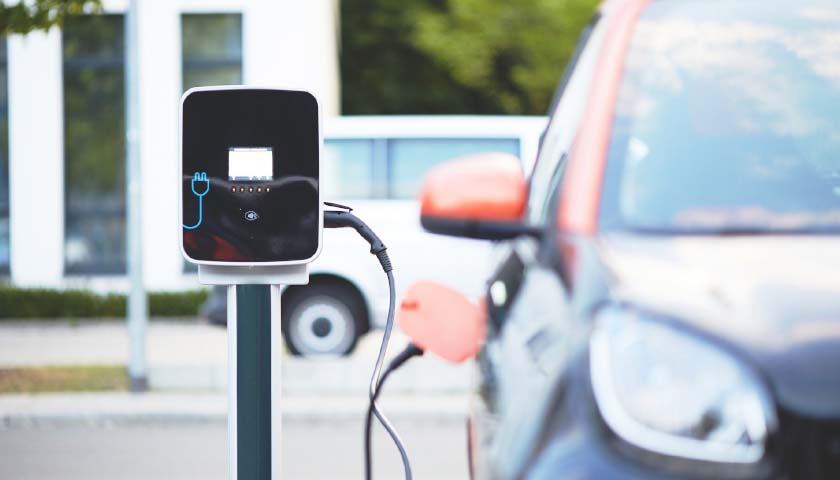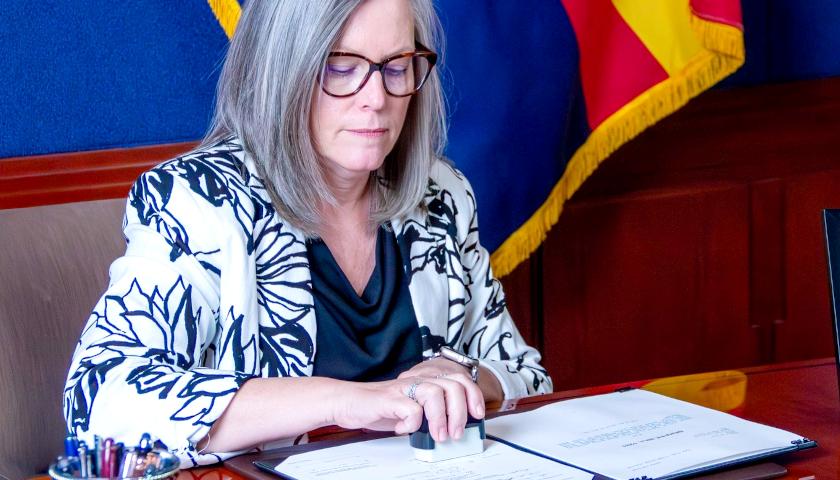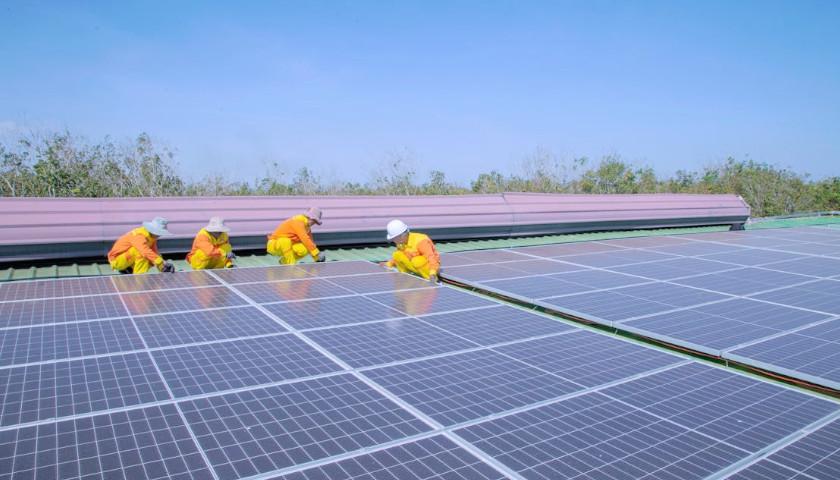by Scott McClallen
A rise in the number of electric vehicles rumbling off manufacturers’ assembly lines and hitting the state’s roads and highways has Michigan planning to build out a network of charging stations.
A state report predicts by 2030, hybrid or electric vehicles (EV) will represent 51% of all vehicle sales; 50% of vehicle production will have Level 2 autonomy or higher; and software will account for more than 50% of the value of a new vehicle.
But as of Nov. 2020, Michigan ranked 14th-to-last in the nation for the number of EV chargers per 100,000 people.
The Michigan Department of Environment, Great Lakes, and Energy (EGLE) is in the process of securing commitments to build out 75 direct-current fast charger stations with nearly 300 chargers across Michigan by 2030. Currently, Michigan has 480 publicly accessible charging stations with nearly 1,400 charging outlets and another 146 charging stations at private businesses.
The Secretary of State’s office counts 5.8 million gas vehicles, and 13,545 EVs and 105,651 hybrid vehicles registered in the state.
A Volvo study found consumers’ most significant concern from switching to an electric vehicle is running out of power (58%), followed by low availability of charging stations (49%).
Jason Hayes, director of environmental policy at the Mackinac Center for Public Policy, pointed out several barriers to Michigan consumers switching to EV.
He noted some batteries work well in 70 degree temperature, but an EV’s range often halves in frigid Michigan winters.
Some EVs have safety concerns as well, Hayes said. GM has warned some Bolt EV owners not to park in a garage overnight or leave their vehicles charging overnight because of fire hazards. When EVs catch fire, they burn hotter and longer than gas combustion engine fires.
Hayes said just as government shouldn’t be building gas stations with taxpayer money, they shouldn’t be building EV charging stations either. Instead, private companies should invest their money and absorb the risk and possible profit.
Hayes compared the government picking winners and losers of vehicles to government-mandated light regulations from incandescent bulbs to compact fluorescent lamps, which didn’t work as well and contained mercury. So then the industry switched to LED bulbs.
“So government forced its way into the issue, mandated the choice that they thought was right, and proved themselves wrong,” Hayes said. “They didn’t know the best answer, and they’re doing the exact same thing with EV chargers.”
Other problems abound.
Gas vehicles still outperform EVs in mile range. “Pound for pound, gasoline or diesel fuel contain about 40 times as much energy as a state-of-the-art battery,” Samantha Gross, the director of Energy Security and Climate Initiative for the Brookings Institution Gross wrote.
According to the Benchmark Mineral Intelligence, the demand for graphite from the battery sector is expected to rise 30% annually until 2030, and the United States will see a deficit starting in 2022.
While the nation braces for adoption of EVs, those vehicles require rare minerals that must be mined such as cobalt and lithium for which the United States has permitted only a few mining operations.
Hayes said our rate of mining will have to increase between 200% to 2,000%, depending on the mineral being mined. At the same time, the current regulatory environment is making it more difficult to open up domestic mines. This forces U.S. manufacturers to buy minerals from China, which uses energy sources like coal, and relies on slave labor that includes children. Additionally, unregulated mines in the Democratic Republic of Congo produce most of the world’s cobalt, often mined by child slaves.
Hayes said the government should play no role in picking and choosing winners of EV versus gas vehicles.
“People can make these decisions themselves,” Hayes said. “They don’t need the federal or state government telling them what sort of cars they should drive. They are perfectly capable of deciding on their own.”
– – –
Scott McClallen is a staff writer covering Michigan and Minnesota for The Center Square. A graduate of Hillsdale College, his work has appeared on Forbes.com and FEE.org. Previously, he worked as a financial analyst at Pepsi.
Photo “Electric Car Charging Station” by andreas160578.





